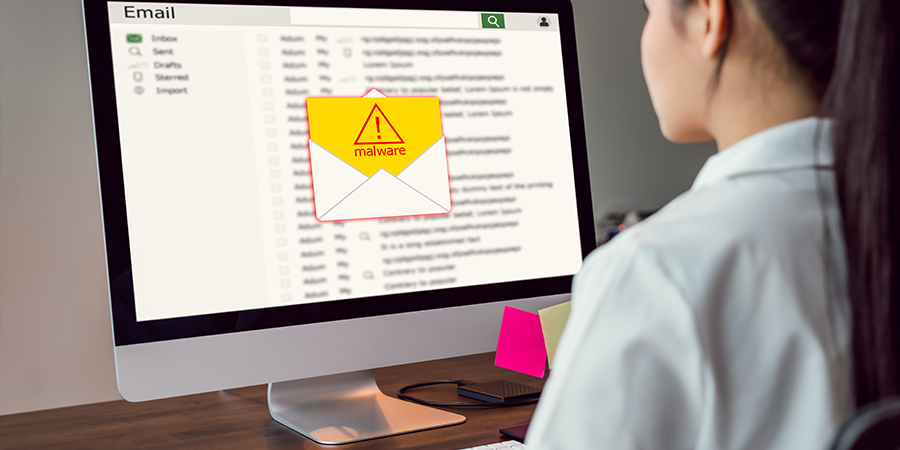
Your business’s confidential information is at constant risk of a cybersecurity breach. Awareness of the different types of attacks your business is vulnerable to is the first step in preventing them.
Cybercriminals use a few common tactics to gain critical information from businesses and either use it for harm or hold it for ransom. Learn the most common cybersecurity threats posing a risk to your business. Then, consider a cyber liability policy from Gilsbar to mitigate your risk.
Common Cybersecurity Threats Your Business Needs To Know About
Your business shouldn’t rule out any potential cyberattacks and threats. However, some attacks are more common than others. Understanding these types of attacks can help you form a cybersecurity plan to prevent them before focusing on less common threats.
Phishing
Phishing, also known as social engineering, occurs when a cybercriminal convinces an employee to give up vulnerable information by appearing as a trustworthy source.
The scammer may pose as another employee in the company, especially someone in a higher-up position with the authority to request confidential information. Alternatively, they may pose as a legitimate company, such as a bank or internet service provider, and ask for the information they would need in that company’s normal line of business.
Phishing attacks can be very convincing. Take the time to train employees on how to identify these attacks and stress the importance of not giving confidential information without verifying the person’s identity.
Ransomware Attacks
Ransomware is a type of malware, or malicious software, that steals your company’s sensitive information and holds it hostage. The attackers in these common cybersecurity threats will lock your data until you agree to pay the ransom to release it. Your company will be unable to proceed with day-to-day activities and face the risk of confidential information falling into malicious hands.
Employees may accidentally download ransomware through a suspicious email link or attachment, unsecured Wi-Fi networks, or malicious websites. Your organization may be unaware that the ransomware has spread throughout your systems until the cybercriminal contacts you directly, by which time they already have your most sensitive information.
You must train employees not to click on any attachments or links that they are unfamiliar with.
Injection Attacks
Although injection attacks are common cybersecurity threats, many people are unaware of them. They occur when cybercriminals “inject” malicious code or commands into your system, causing it to execute an action allowing them to control the entire system.
For example, an attacker may send a SQL injection that changes “10” to “101 OR 1=1.” This new command returns all records to the attacker instead of just one. As a result, the attacker now has access to all of your company’s confidential records.
One of the most reliable ways to resist injection attacks is to minimize the privileges you assign to accounts in your system. That way, if a hacker gains access to an employee’s account, they likely won’t have the privileges to execute commands that provide them with sensitive data.
Distributed Denial of Service (DDoS) Attacks
A DDoS attack seeks to overwhelm your servers with internet traffic to prevent users from accessing your systems. These attacks are somewhat unique in that they do not always provide attackers access to your sensitive data. Instead, a hacker may execute a DDoS attack simply to make a statement about your company or to cause you distress without gaining anything in return.
Some cybercriminals may instead threaten an attack if your organization does not pay them an exorbitant amount.
One technique for preventing DDoS attacks is to understand and monitor your network’s typical traffic. This lets you quickly identify unusual activity and shut the network down while mitigating the attack.
Seek a Cyber Liability Policy From Gilsbar Today
Now that you know common cybersecurity threats, you can begin taking steps to improve your cybersecurity. One crucial step is purchasing cyber liability insurance to account for the financial risk cyberattacks pose to your company. Contact Gilsbar today to get a quote.
